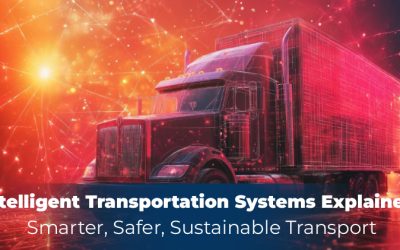
Expanding into new markets is a critical milestone for businesses aiming to grow their customer base, enhance brand visibility, and increase revenue. However, achieving success in new markets requires more than ambition—it demands efficient logistics operations, seamless supply chain management, and the ability to navigate complex transportation networks. This is where Transportation Management Software (TMS) comes into play. By leveraging end-to-end TMS for logistics automation, companies can streamline transportation processes, reduce operational costs, and ensure a smoother entry into new markets.
The Role of TMS in Market Expansion
Transportation Management Software is designed to simplify, automate, and optimize transportation operations. For companies expanding into new markets, a reliable TMS helps reduce the logistical complexities associated with managing transportation across unfamiliar territories. These systems provide real-time visibility into logistics operations, empowering businesses to make data-driven decisions and quickly respond to changing market demands.
A survey by Gartner highlights that businesses using TMS solutions reported a 15% reduction in transportation costs and a 25% improvement in service levels. These benefits are critical when entering competitive markets, where cost efficiency and customer satisfaction determine long-term success.
Key Benefits of TMS for Market Expansion
-
Enhanced Route Optimization
Efficient route optimization is a cornerstone of successful logistics. When entering new markets, businesses face unfamiliar regions, varied regulations, and different customer expectations. Advanced TMS solutions leverage real-time data and predictive analytics to determine the most efficient routes.
This feature minimizes fuel consumption, reduces delivery times, and enhances customer satisfaction by ensuring timely deliveries. For example, TMS solutions can dynamically adjust routes based on real-time traffic or weather conditions, ensuring cost-efficient and dependable transportation.
-
Improved Cost Management
Expanding into new markets often involves high costs related to setting up new distribution channels and managing increased shipment volumes. TMS solutions offer detailed insights into transportation expenses—such as fuel, labor, and vehicle maintenance—helping businesses optimize their spending.
According to a report by Statista, companies that implemented TMS solutions experienced a 10% to 20% reduction in transportation costs. By managing these expenses effectively, businesses can allocate more resources to market expansion initiatives.
-
Compliance with Local Regulations
Every market has its own set of transportation laws, customs regulations, and safety standards. TMS solutions help businesses stay compliant by automatically updating regulatory requirements and ensuring adherence to local guidelines.
This feature is especially important in cross-border expansions, where failure to comply with customs regulations can lead to fines, shipment delays, or even market-entry restrictions. A TMS ensures that businesses remain up-to-date with ever-changing regulatory environments.
-
Real-Time Tracking and Visibility
One of the biggest challenges of market expansion is maintaining visibility over the supply chain. Without real-time tracking, companies risk losing control of their transportation operations, which can lead to misplaced shipments, delays, and dissatisfied customers.
TMS solutions offer end-to-end visibility by enabling businesses to monitor shipments in real time. This transparency improves decision-making and allows companies to keep customers informed about delivery timelines. For example, if an unexpected delay occurs, businesses can proactively communicate updates to customers, ensuring higher satisfaction levels.
-
Scalability and Flexibility
As businesses grow, their logistics needs become more complex. A key advantage of TMS is its ability to scale alongside market expansion efforts. Whether it’s handling increased shipment volumes, accommodating new distribution channels, or adapting to diverse market demands, a scalable TMS ensures seamless operations.
Moreover, the flexibility of TMS solutions allows companies to tailor their transportation strategies based on specific market requirements, ensuring competitiveness in any region.
How TMS Supports Logistics Automation
Automation is a vital component of modern logistics, and TMS solutions are at the forefront of logistics automation. By automating repetitive tasks, businesses can reduce manual errors, save time, and enhance operational efficiency. Key automation features of TMS include:
- Automated shipment scheduling
- Dynamic route optimization
- Freight audit and payment automation
- Real-time alerts and notifications
These capabilities free up logistics teams to focus on strategic priorities, such as refining market entry strategies or building stronger customer relationships.
Choosing the Best TMS for Market Expansion
Selecting the right Transportation Management Software is crucial for businesses looking to expand into new markets. Here are key factors to consider when choosing a TMS:
-
Integration Capabilities
Ensure that the TMS integrates seamlessly with existing systems such as ERP (Enterprise Resource Planning) and WMS (Warehouse Management Systems). This integration ensures smooth data flow across departments, reducing manual data entry and minimizing errors.
-
Scalability
Choose a TMS that can scale to handle increasing shipment volumes, new distribution channels, and evolving logistics requirements. Scalability ensures that your logistics operations remain efficient as your business grows.
-
User-Friendly Interface
A simple and intuitive interface reduces the learning curve for employees, ensuring faster adoption and minimizing the risk of errors.
-
Reliable Customer Support
Market expansion can present unforeseen challenges. A TMS provider with dependable 24/7 support ensures that businesses receive timely assistance to resolve any issues. Look for vendors that also provide training resources and regular updates to enhance system performance.
According to MarketsandMarkets, the global TMS market is expected to grow to $4.9 billion by 2027, driven by increasing demand for logistics automation and cross-border expansions.
Real-World Success Stories
Many companies have leveraged TMS to successfully expand into new markets. For instance:
- DHL: Implemented TMS to optimize its global transportation network, resulting in faster deliveries and significant cost savings.
- Nike: Used TMS to enhance supply chain visibility, enabling seamless expansion into new regions while maintaining superior service levels.
- PepsiCo: Automated transportation operations using TMS, reducing manual tasks and enhancing overall logistics efficiency.
These examples demonstrate how TMS solutions can drive successful market expansion efforts.
Conclusion
Expanding into new markets requires businesses to overcome logistical challenges and deliver exceptional service in competitive environments. Transportation Management Software equips companies with the tools they need to optimize logistics operations, reduce costs, and streamline market entry processes.
From enhanced route optimization to compliance management, TMS solutions provide a comprehensive framework for sustainable growth. For companies aiming to stay ahead in an increasingly globalized market, investing in a robust TMS is no longer optional—it’s essential for long-term success.
Ready to take your logistics operations to the next level? Schedule a demo with TMS-Digital today and discover how our industry-leading TMS solutions can empower your business to expand into new markets seamlessly.










